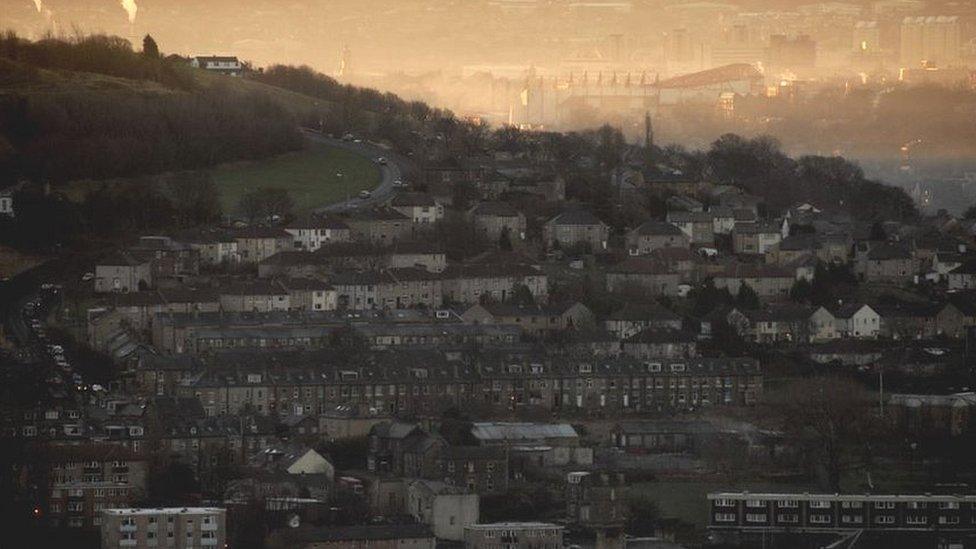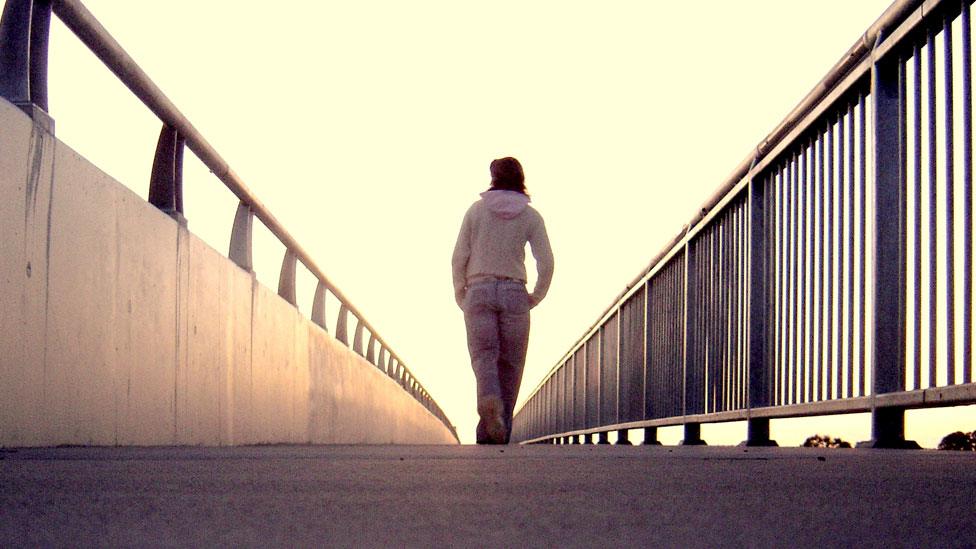Hundreds in Bradford 'at risk of child exploitation'
- Published

Bradford Council has received additional funding to help tackle child exploitation
Hundreds of children are involved in or at risk from organised crime and sexual exploitation in Bradford, a report has said.
A new report suggests 471 youths are part of or connected to one of the city's 51 organised criminal groups.
It found 347 young people were deemed at risk of sexual exploitation in August - a 14.5% rise since January.
Bradford Council said a recent £1m funding boost would help support schemes aimed at reducing exploitation.
A meeting at City Hall at 16:30 BST will discuss the findings and hear about what is being done to tackle child sexual and criminal exploitation.
Latest news and stories from Yorkshire
The report, compiled by the council's strategic director for children's services, called child criminal exploitation an "emerging issue" in the district which hadn't been studied in detail before.
The term is used to describe young people being lured into a life of crime by older criminals who get them involved in drug dealing, theft, and transporting criminal property.
A team comprising members of Bradford Council, West Yorkshire Police and local children's groups has been created to look at how best to support children who have been coerced into crime.
The NSPCC said although the children are committing crimes, it should be recognised they are being exploited, and offered support to escape the lifestyle.
Child criminal exploitation is often seen in "county lines" operations, the report said, where suppliers use young people to transport and sell drugs in other parts of the country.

The findings of the child criminal exploitation and child exploitation report will be discussed at Bradford's City Hall
The latest findings on child sexual exploitation (CSE) in Bradford include:
The average age of a child assessed as being at risk of CSE is 15 years and 1 month, predominantly female and white British
Children as young as 10 have been flagged up as vulnerable to grooming
In August, a total of 347 children and young people were assessed to be at risk of child sexual exploitation - 203 of the total were white British, 43 were British Pakistani
Crime data showed 317 CSE flagged offences recorded between April 2017 to March 2018 - a decrease from 348 the previous year.
A third of individuals suspected in committing CSE are aged between 30-39
An ethnic breakdown of individuals suspected of being involved in CSE showed about 60% were of Pakistani heritage, 20% white British
Bradford Council was recently given £1m of Home Office funding to boost its safeguarding hub's annual £2.5m budget.
The report said: "Too many children and young people in Bradford are at risk of exploitation in different ways".
These included sexual exploitation, criminal involvement in organised crime and gangs, trafficking and radicalisation, it said.
"This funding will enable additional support to reduce exploitation of young people."
It continued: "They will be supported to access local activities and services, building their resilience and ensuring a robust exit plan from exploitative situations."
Bernard Gallagher, a child protection expert from Huddersfield University, said: "There's a lot of things the council have to do, and are doing - it's about raising awareness among young people, parents and people who can protect them from the risks of child sexual exploitation.
"There does seem to be an organised crime element to some of these offences.
"I think it underlines the importance of agencies working together and the police taking an early and robust approach."

How to report CSE
If you're worried that a child or young person is at risk or is being abused you can contact the children's social care team at their local council. You can choose not to give your details.
You can report it online, external to the Child Exploitation and Online Protection command (CEOP).
Or you can call the NSPCC 24-hour helpline on 0808 800 5000 for expert advice and support.
If a child is at immediate risk call 999, or call the police on 101 if you think a crime has been committed.
Children and young people can call Childline free on 0800 1111 where trained counsellors are available 24 hours a day, every day.
- Published16 March 2018
